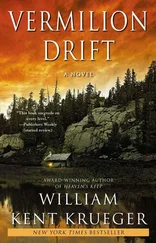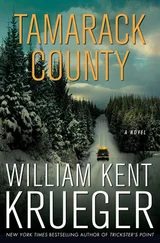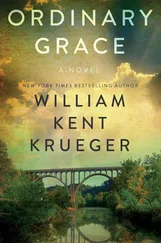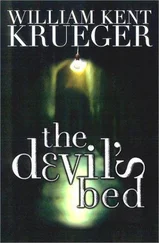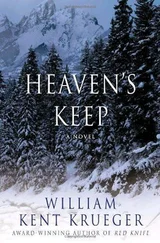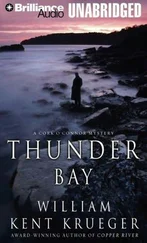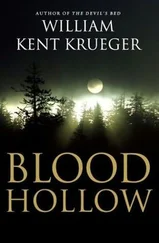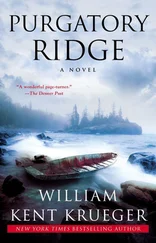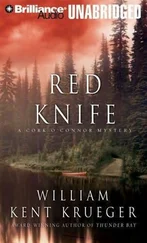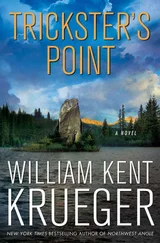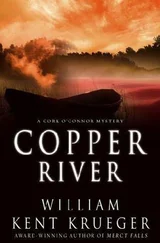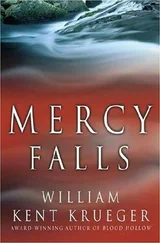Anne was up next and then Jenny, and the three women sat in deck chairs on the forward platform, sipping coffee, talking quietly, watching the sun crawl the sky, waiting for the men.
When she heard the dinghy’s old outboard cutting through the morning calm, Rose got up and said, “I’ll start the potatoes.”
Anne stood up, too. “Let me give a hand, Aunt Rose.”
“No,” she said. “You and Jenny sit. Talk. It’s what sisters should do. You almost never see each other these days.”
She went to the galley to prepare breakfast. She planned to roast potatoes with onions and red peppers and tomatoes. She thought she would scramble eggs with chives and cream cheese. She would slice melons and strawberries and toss them in a bowl with plenty of fat blueberries. And there would be, she was almost certain, fresh fish to fry.
She heard the men as they pulled alongside and tied up to the houseboat and clambered aboard. She heard Cork say, “Beer and pretzels,” and she hoped he wasn’t talking about breakfast.
Mal stepped into the galley, smiling hugely, and held up a stringer full of fat yellow perch. “The hunter home from the hill,” he said.
“You shot them?” Rose replied. “Not very sporting.”
Mal kissed her cheek and started toward the sink.
“Uh-uh,” she said. “Those get cleaned on deck.” She took him gently and turned him toward the door. “When you have them filleted, bring them in and I’ll fry them up.”
Stephen came in and went straight to the canister Rose had filled with chocolate chip cookies the day before. He took a handful and said, “Okay, Aunt Rose?”
“Don’t spoil your breakfast.”
“Are you kidding? I could eat a moose. Can I have some milk, too?”
He left with the cookies and a plastic tumbler filled to the brim. Moments later, Rose heard him talking with his sisters on deck and laughing.
The rented houseboat had a table large enough for all of them to gather around, and they ate amid the clatter of flatware against plates and the lively symphony of good conversation. Anne and Jenny offered to clean up, and they gave Stephen a hard time until he agreed to help. Mal showered, then Cork, and afterward both men settled down to a game of cribbage. The kids finished the dishes, put on their swimsuits, and dove into the lake. Rose set a deck chair in the shade under the forward awning of the houseboat. She sat down to read, but her mind quickly began to wander.
Nearly two years had passed since Jo had been lost in the Wyoming Rockies. Nearly two years dead. And Rose stilled missed her sister. Her deep grieving had ended, but there was a profound sense of something lacking in her life. She had taken to calling this the Great Empty. The kids—“kids” she thought them, though Jenny was twenty-four, Anne twenty-one, and Stephen almost fifteen—splashed and laughed in the water, yet she knew that they felt the Great Empty, too. Cork never talked about his own feelings, and Rose understood that the avoidance itself was probably a sign he was afflicted as well. She wished she knew how to help them all heal fully. In the days when he’d been a priest, Mal had often dealt with death and its aftermath, and he advised her that healing came in its own time and the best you could hope for was to help ease the pain along the way.
“And does everyone heal in the end?” she’d asked her husband.
“Not everyone,” he’d said. “At least, not in my experience.”
She watched the kids in the water and Cork at the table slapping down his cards, and she breathed in the pine-scented air above that distant, isolated lake, and she prayed, “Let us heal, Lord. Let us all be whole again.”
In the early afternoon, Cork said, “It’s time, Jenny.”
She looked up from the table where she’d been writing, put the pencil in the crease between the pages, closed her notebook, and stood.
“How long will it take?” she asked.
“Less than an hour, if we go directly. But today we’re going to make a little side trip.”
“Where?”
“You’ll see.”
Her father liked mysteries, large and small. She understood it was part of what drew him through life, the need to find answers. In a way, it was also what drove her, but they went about it differently. He’d been a cop most of his life and now he was a PI. She, on the other hand, was a writer.
Stephen came from the galley, one hand filled with potato chips. “Can I go?”
“Not this time,” his father said. “Jenny and I have things to discuss.”
Things to discuss, she thought. Oh, God.
“Ah, come on,” Stephen said.
Cork shook his head. “Oz has spoken. But if you want to help, go fill the motor on the dinghy with gas.”
“I didn’t say I wanted to help. I said I wanted to go.”
“And now you’re going to help,” Cork said. He turned to Jenny. “Wear your swimsuit and bring your camera.”
“Why?”
“You’ll see.”
Mysteries, she thought with a silent sigh. But maybe, if they were interesting enough, they would keep her father away from the things he wanted to discuss.
Early September. The air thick on the lake and the sky a weighty blue. The weather, he’d been told, was unusual for that time of year so far north. Hot beyond anyone’s memory. Usually by the end of August fall was already solidly in the air. But not this year. The intense heat of the afternoon was bearable only because of the wind generated by the dinghy speeding over smooth water.
Though they were in Canada, Cork knew he could just about throw a stone onto U.S. territory. They were on the Lake of the Woods, a body of water roughly eighty miles long and sixty miles wide, containing over fourteen thousand islands. That’s what he’d been told in Kenora, anyway. The lake straddled the U.S.-Canadian border. Border? Cork shook his head, thinking how easily that international marker was crossed on this lake. There was no line on the water to delineate one nation from the other. Kitchimanidoo, the Creator, had made the land a boundless whole. It was human beings who felt the need for arbitrary divisions and drew the lines. Too often, he thought, in human blood.
He held the tiller of the little Evinrude outboard, guiding the dinghy southwesterly across broad, open water toward a gathering of islands humped along the horizon. In the half hour since they’d left the houseboat, he hadn’t exchanged a word with Jenny. Which, he strongly suspected, was just fine with her.
The lake was beautiful and, like so many things of beauty, deceptive. The water that day was like glass. The vast size of the lake suggested depth, but Cork knew that beneath the tranquil surface lay reefs and rocks that in the blink of an eye could slit a hull or chew the blades off a prop. He’d been using GPS to follow the main channel between the islands and had been keeping a good speed. But south of Big Narrows he swung the boat west out of the channel, slowed to a crawl, and entered an archipelago composed of dozens of islands, large and small. The shorelines were rocky, the interiors covered with tall pine and sturdy spruce and leafy poplar. Cork eased the boat patiently along, studying the screen of the Garmin GPS mounted to the dash, into which he’d downloaded a program for Lake of the Woods. The water was the color of weak green tea, and he told Jenny, who sat in the bow, to keep her eyes peeled for snags that the GPS couldn’t possibly indicate. After fifteen minutes of careful navigation, he guided the dinghy up to the rocky edge of a small island. He eased the bow next to a boulder whose top rose from the water like the head of a bald man, and he cut the engine.
“Grab the bow line and jump ashore,” he told Jenny.
She leaped to the boulder, rope in hand.
Читать дальше

